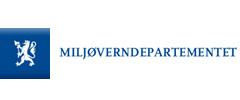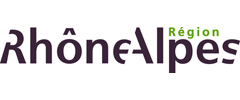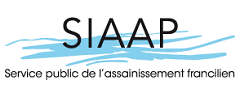WECF press release
European women sound alarm over health threats from everyday chemicals; discussion with all stakeholders at High-Level Roundtable 27 November, Brussels
24.11.2006 |Irma Thijssen
European women sound alarm over health threats from everyday chemicals
According to Women in Europe for a Common Future (WECF), the leading network of women's organisations in 31 European countries on health and environment issues, ordinary chemicals in low doses are undermining the health and intellectual capacities of children.
WECF is upset about the downplaying of the issue in a recent Commission Paper*, which seems to completely miss the point of new scientific insights, that show everyday chemicals in ‘accepted doses’ are a special threat to pregnant women and their unborn child. Cancer and mental disabilities in adult life can already be induced by pollutants reaching the unborn child.
These new insights make it urgent to review the existing policy approaches to chemicals, says WECF: “Industry arguments against a strong chemicals policy deny the fact that by damaging our brains and health we are also undermining Europe’s competitiveness.”
Professor Philippe Grandjean, from Harvard Medical School (USA), speaks about ‘Chemical Brain Drain’. Earlier this month, Grandjean published in the prestigious medical magazine The Lancet that more than 200 chemicals allowed on the market that have neurotoxic effects and can cause brain damage to fetal and infant brain development. One in 6 children has developed brain damage. The effects range from learning disabilities to autism. Grandjean: “New, precautionary approaches are required for chemical testing and control that recognise the unique vulnerability of the developing brain.”
In explaining one of the possible mechanisms, Dr. John Peterson Myers of Environmental Health Sciences, USA, co-author of the groundbreaking book “Our Stolen Future”, says: “More and more scientific studies show that gene expression - not genes - can change by chemical interference during fetal development by exposure to low doses of chemicals.”
Professor Belpomme, cancer specialist in Paris: “The tremendous increase in cancer over the last decennia is probably for more than 50 % caused by environmental pollution. Every year children’s cancer in Europe increases 1 %, breastcancer has doubled the last 20 years and prostate cancer has tripled.”
“Europe’s economic strategy aims at being the most competitive ‘knowledge based’ economy in the World. This means that our capital is the intelligence and capacity of our new generations”, says Sascha Gabizon, international director of WECF. “We have to take the latest Harvard research seriously on negative effects on young children’s brains from chemicals in our daily environment. We keep urging the European Parliament and the European Council to prevent industry torpedoing miniumum necessary legislation such as REACH. We can not put our children’s intelligence at stake. Safeguarding our children’s brains is also a precondition for a successful economic strategy.”
On the 27th of November, in a High-Level Roundtable, scientists, representatives from the Commission, politicians, NGOs and representatives from industry will debate on these issues and discuss the steps that need to be taken.
---------------------
Contact persons:
Irma Thijssen (WECF office), +31 30 2801155, Marie Kranendonk (mobile) + 31 6 53556941
Women in Europe, +31 30 2310300, wecf@wecf.org
The High-Level Roundtable is organised by Women in Europe for a Common Future WECF, with support of two large European NGO networks, The European Environment Bureau EEB and the Health and Environment Alliance HEAL and the Dutch Ministry of Environment.
* Commission Paper: Environment and Health Information Review and Implementation Plan (SEC (2006) 1461)


































